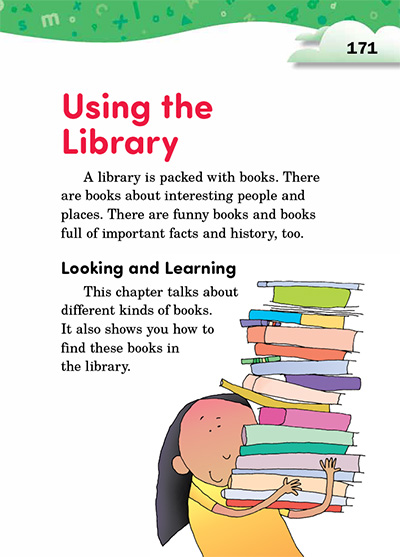Page 171 from

Start-Up Activity
Write the following heading on the board: "What I Know About the Library." Have students volunteer ideas, accessing their prior knowledge.
Then have students brainstorm responses to this heading: "What I Want to Learn About the Library." This list will help awaken students' curiosity.
Read aloud the chapter introduction.
Note: At some point during this chapter, have the media specialists at your library lead your students on a tour. You might wish to schedule the tour after presenting the material on pages 171–175.
Think About It
“The only thing that you absolutely have to know is the location of the library.”
—Albert Einstein

Start-Up Activity
Write the following heading on the board: "What I Know About the Library." Have students volunteer ideas, accessing their prior knowledge.
Then have students brainstorm responses to this heading: "What I Want to Learn About the Library." This list will help awaken students' curiosity.
Read aloud the chapter introduction.
Note: At some point during this chapter, have the media specialists at your library lead your students on a tour. You might wish to schedule the tour after presenting the material on pages 171–175.
Think About It
“The only thing that you absolutely have to know is the location of the library.”
—Albert Einstein